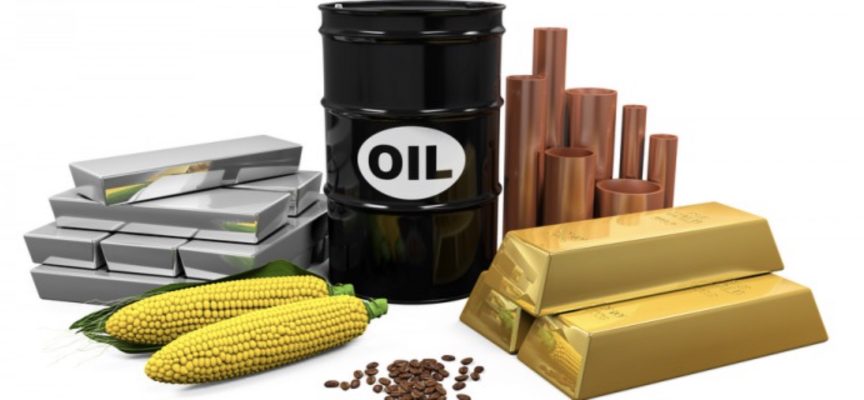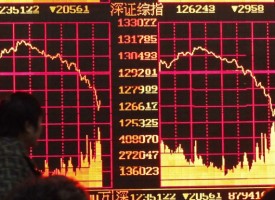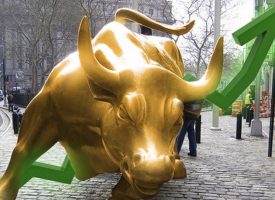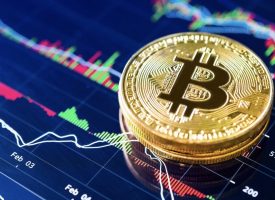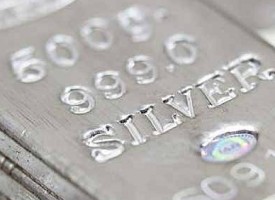With a world on the edge of chaos, China’s edge will bring about a great bull market in gold.
A Sharp Rise In Gold Is Inevitable
Stephen Leeb: “The case I’ve been making for gold is inseparable from my belief that China and the East will continue to play an ever larger economic role on the world stage at the expense of the U.S. and the West. In previous interviews I’ve focused on various reasons to believe the East’s rise is unstoppable and therefore a sharp rise in gold is inevitable, even if short-term dips may lie in store…
IMPORTANT…
To find out which junior a leader in the gold mining
industry just bought a 20% stake in CLICK HERE OR BELOW:
Here, probably inspired by Memorial Day weekend, which evokes thoughts of Americans all over the country packing up the car for a long weekend at the beach or in the mountains, I’m offering yet another reason for betting on China: the battle of electric vehicles (EVs). It contains in microcosm much of the reason for China’s edge over us as the 21st century proceeds, an edge that we seem helpless to challenge.
For most Americans, readers, EVs are virtually synonymous with Tesla Motors, the U.S. maker of EVs headed by Elon Musk, founder of Pay Pal and Space X and an entrepreneur of boundless confidence and ambition. Even if you’re not particularly interested in cars, you may have noticed that Tesla – which has yet to turn a profit – has been in the news lately as its market cap has roared past that of traditional car manufacturers like Ford. In fact, for many Americans, Tesla has become an iconic symbol of U.S. tech. It is the company which will show the world who really is in charge when it comes to next generation energy products.
Meanwhile, I’d bet that most readers have never heard of the Chinese company BYD, which also makes and sells EVs. While Tesla may have all the glamor and name recognition for now, BYD and other Chinese EV makers have some more substantial pluses, starting with their ability to use a more efficient type of engine as a result of China’s greater access to certain critical resources.
Two types of engines can be used in making EVs. One is an induction engine, which, just as in an induction stove, creates its own magnetic field. The other is based on permanent magnets (PM), which come with their own powerful magnetic field. The PM engine is the superior choice, as it’s both lighter and more efficient than the induction engine and results in better performance.
The catch is that permanent magnets – which beyond cars have many other critical uses, including their role in advanced military technology – aren’t easy to come by. That’s because they are made from the hard-to-mine, hard-to-process materials known as rare earth metals. And not just any rare earth metals, but heavy rare earth metals, which are the ones that are truly rare.
And that’s too bad for the U.S. and for Tesla, because – in contrast to China –we’ve languished when it comes to developing rare earth metals. China starts out with the indisputable advantage of having the world’s largest deposits. But beyond this natural endowment, China is the only country with the capabilities of bringing the mined ore through the complex series of steps needed to transform it into the end product, permanent magnets. When rare earth ore is mined, the heavy rare earths among them need to be separated out. Because rare earths are radioactive, the separation and subsequent processing require enormous care and expertise. The supply chain that transforms rare earth ore into a usable product has at least seven or eight links. It’s a difficult, messy, and expensive process, but the end result is an energy source that is essentially limitless and virtually free once you deduct the costs of getting there.
Coming back to the battle of the EVs, lack of access to rare earths and permanent magnets has forced Tesla to use the induction engine in its cars. Chinese manufacturers of EVs mostly use PM engines, giving them a big edge in producing cars that perform better.
Is there any chance the U.S. could catch up to the Chinese in developing rare earth metals? It’s very remote, especially since while some U.S. officials occasionally pay lip service to the need, there seems no real understanding of the urgency or complexity of the task of developing the deposits that do exist in the U.S. as well as in Canada. Two U.S. senators, West Virginia’s Joe Manchin and Missouri’s Roy Blunt, co-sponsored legislation in 2014 to promote U.S. development of rare earths. But the legislation has gone nowhere, and in any case wouldn’t have countered the lack of skills here to make the ore usable. No school here offers a dedicated program in rare earth engineering. Mining rare earths isn’t a venture likely to attract private enterprise, given the lengthy and indefinite payback period. The government as shown by inaction on the Manchin-Blunt proposal is on the sidelines. While developing rare earths could, and should, be an essential part of a full-scale program to revive U.S. infrastructure, it does not seem to be on anyone’s radar so far.
So lack of access to rare earths is one strike against Tesla. But it’s not the only problem Tesla faces that relates to obtaining natural resources and that bespeaks of how the U.S. is lagging China. Because induction engines are less efficient than PM engines, Tesla needs to compensate by using batteries that are of maximum efficiency. But here, too, it’s handicapped.
A key ingredient in making efficient batteries is graphite. It comes in two forms, synthetic and natural. Synthetic, which is made from oil products, is the more expensive. It used to have the advantage of being purer than natural graphite, but that’s no longer true since now there are ways to treat natural graphite to raise its purity to nearly 100 percent while still maintaining a huge cost advantage over synthetic.
So where does Tesla stand in terms of getting the natural graphite it needs? Somewhere below its Chinese competitors, which can obtain it far more cheaply since China is the world’s largest integrated producer of natural graphite. Moreover, by virtue of its relationship with the Congo, the world’s leading producer of cobalt, China also is the leading producer of finished cobalt. Cobalt is very expensive but Tesla needs it to make its cars as efficient as possible. Chinese car manufacturers, despite their readier access to cobalt, don’t bother with it, largely, we assume, because they can produce a cheaper and more efficient EV without it than Tesla can with it.
Just one more comment on Tesla’s challenges, and China’s edge, when it comes to natural resources, and then I’ll stop. There’s a one-atom thick version of natural graphite that is known as “graphene,” discovered in 2004 to be a stable form of carbon by two scientists who later received a Nobel Prize for the discovery. Batteries that use graphene are approximately 10 times more efficient than ones using regular graphite. China recently introduced an EV using a graphene battery. Scaling graphene batteries is clearly the next step, and if anyone is going to be successful it is very likely the Chinese, the largest integrated producer of pure graphite.
China Will Bring About A Great Bull Market In Gold
The bottom line is that it seems inevitable to me that Chinese car companies will be able to produce EVs more cheaply and more efficiently than Tesla ever will. But it’s the broader implications that really matter, not which particular EV car company emerges in first place. China’s far stronger position in critical natural resources is a key aspect of why China will continue to carry out its vision for the East, a vision that as we’ve outlined before goes hand in hand with actions that will bring about a great bull market in gold.”
KWN has just released the remarkable KWN audio interview with Egon von Greyerz and you can listen to it by CLICKING HERE OR ON THE IMAGE BELOW.
***ALSO JUST RELEASED: Greyerz – What Is Happening In The Physical Gold Market Is Remarkable CLICK HERE.
© 2017 by King World News®. All Rights Reserved. This material may not be published, broadcast, rewritten, or redistributed. However, linking directly to the articles is permitted and encouraged.

